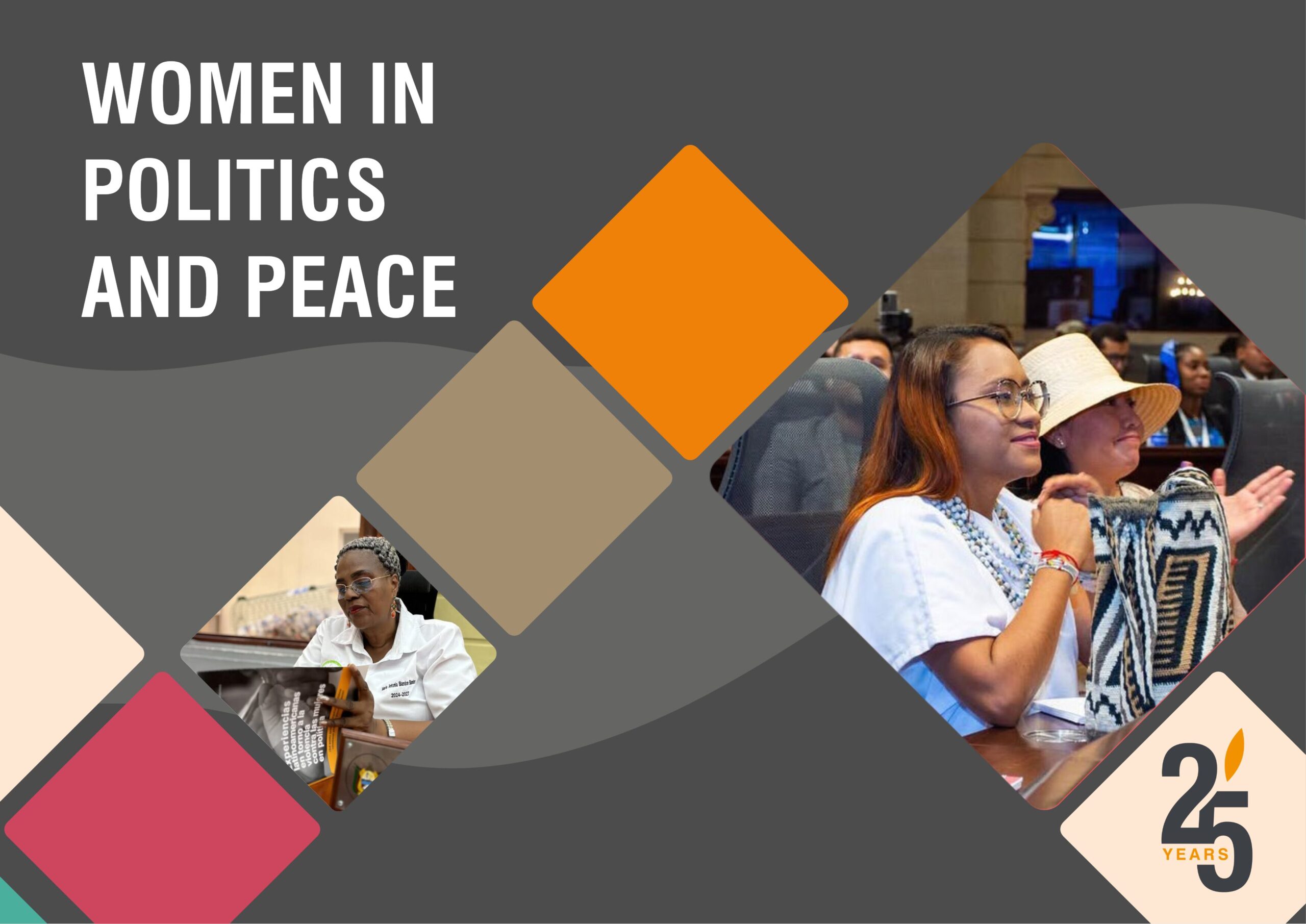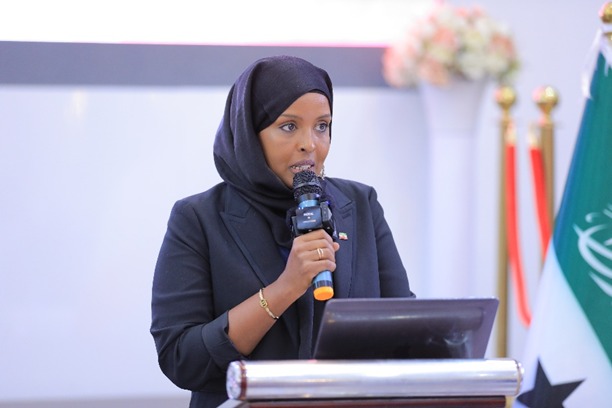“Women are often expected to deal only with issues such as education or child food security, but no more. Decision-making spaces in political parties therefore, continue to be dominated by men, and that ends up affecting the financing of women’s campaigns or relegating them to the bottom of the lists. It is a double struggle that women face in all contexts.” – Jimena Durán, NIMD Consortium Coordinator.
LEAP4Peace Consortium Wraps Up in Bogotá
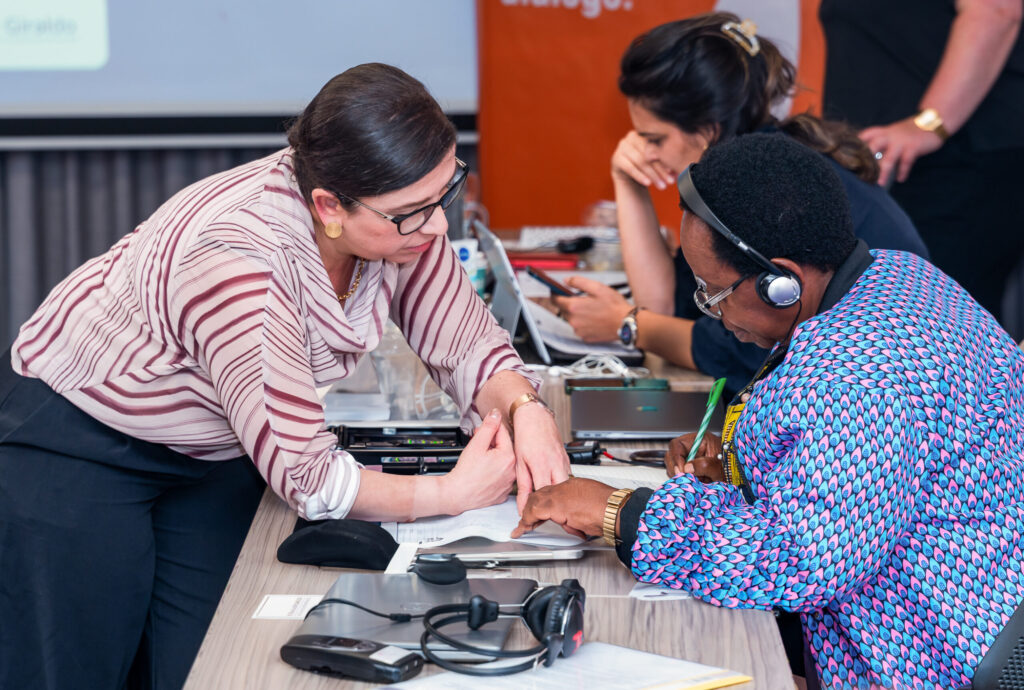
The LEAP4Peace (Leadership and Political Participation of Women for Peace) programme has come to an end. Implemented between 2021 and 2025 in Colombia, Burundi and Myanmar, the initiative aimed to strengthen women’s political role in peacebuilding processes. In addition to NIMD, the other members in the Consortium are the Burundi Leadership Training Program (BLTP), the Gender Equality Network Myanmar (GEN), and Gender Action for Peace and Security (GAPS).
From 7-11 July 2025, the Consortium held its closing event in Bogotá in Colombia, titled “Women’s Voices Forward: Building Peace Across Continents.”
A time for reflection
The event gathered women leaders, civil society actors, and political stakeholders to reflect on lessons learned, celebrate milestones, and reaffirm commitments to inclusive peacebuilding.
It was also a stage to review the challenges that persist and that limit the full and effective participation of women in politics in conflict and post-conflict contexts.
For more information on the the impact of the programme, and our recommendations for the future, see the LEAP4Peace Outcome Statement.
Different countries, common barriers
From restrictive social norms, gender-based violence, lack of effective legal frameworks to male-dominated political structures, women in all three countries face common challenges in exercising their leadership.
LEAP4Peace helped connect these women across borders, fostering shared learning and solidarity to advance the global Women, Peace and Security agenda outlined in UN Resolution 1325.
Colombia: From Grassroots to Legislative Change
In Colombia, LEAP4Peace made significant strides in strengthening women’s leadership during a turbulent period marked by the pandemic, political transitions, and ongoing violence. According to Ángela Rodríguez, Executive Director of NIMD Colombia, the programme helped shape legislation, most notably contributing to the passage of Law 2453 in 2025, which combats violence against women in politics.
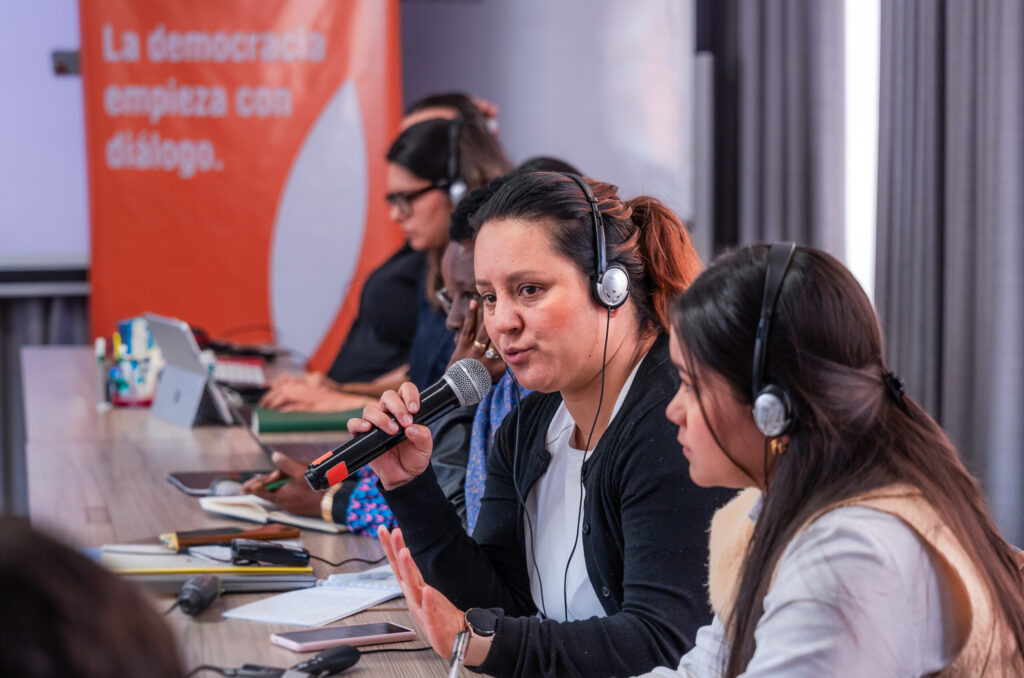
Beyond policy gains, LEAP4Peace empowered women from diverse political backgrounds and community roles. It fostered cross-party alliances and enabled women to implement practical solutions, such as offering childcare during training sessions to lower barriers to political participation. Women who had never engaged in formal politics began leading local initiatives and influencing decision-making spaces.
For example, NIMD Colombia and our partners organized a series of dialogue and consultation forums to ensure that women’s diverse voices were heard in the consultative period preceding the signing of Colombia’s long-awaited National Action Plan (NAP) 1325. The NAP is a national policy framework for implementing the UN Security Council Resolution 1325 on Women, Peace and Security, which calls for the meaningful participation of women in peacebuilding and conflict resolution. Our inclusive approach has set Colombia’s new NAP apart, ensuring it reflects the priorities and perspectives of women across different territories, identities and communities.
Thanks to the work of LEAP4Peace, women leaders at the grassroots level are taking ownership of the 1325 resolution and driving its implementation in their communities
Myanmar: Leadership Amid Conflict
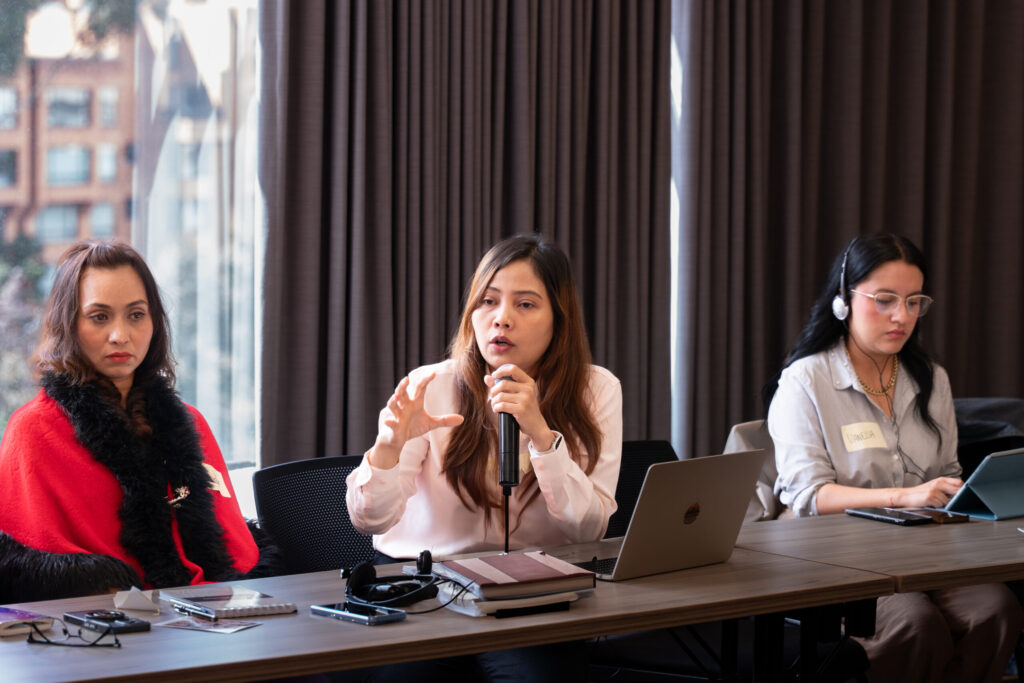
“Women’s leadership in peace processes isn’t just an added value, it’s a transformative force,” said Nway Nway Tun, Programme Manager at NIMD Myanmar. “Even amid active conflict and the aftermath of the 2021 coup, women continue to organise and resist gender-based violence.
But basic barriers remain; many must travel long distances just to charge a device or find a safe, connected space to study or work. These conditions deeply limit their ability to participate and advocate.”
The LEAP4Peace programme provided a platform for women to gain political literacy, organise collectively, and amplify their voices in a context where female leadership is often silenced. For many, this engagement marked the first step toward lasting participation in peacebuilding efforts. Today, women peace ambassadors and peacebuilders networks bringing diverse women together in safe spaces, have emerged as a critical force where women are engaging in mediation of conflict in their communities and building foundational support for women as critical actors in peace processes and the transition to democracy.
Burundi: Challenging Conservatism, Building Confidence
In Burundi, a country with deeply rooted patriarchal norms, LEAP4Peace helped shift perceptions and open political spaces for women. Today, women politicians at grassroot level are engaging in multi-party village and saving loans associations, increasing their financial autonomy to engage in politics.
Pélagie Gahungu, one of the programme’s participants, explained that, thanks to LEAP4Peace, they now feel that they have a voice to intervene in the issues that affect them directly, from the community to formal institutions. “Fear has turned into confidence,” she said, noting how these spaces have also fostered vital networks of support.
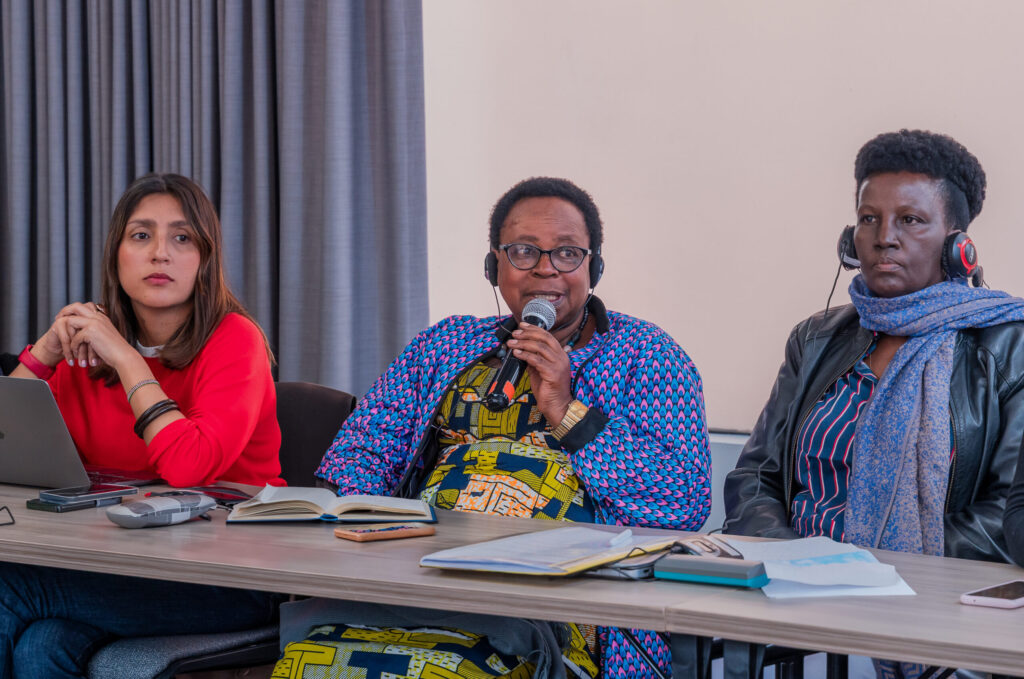
“Beyond training, the most valuable thing has been to see how they themselves have begun to mobilise their agendas and gain recognition in political spaces, both local and institutional” – Johana Trujillo, Gender Equity Programme Officer at NIMD Colombia
A Continued Commitment
Though LEAP4Peace has reached its conclusion, NIMD will continue working with partners to strengthen women’s political participation across the Global South. As Angela from NIMD Colombia puts it, “Politics should not be an intimidating space for women; it should be a tool for transformation led by their own leadership.”
Our recommendations for the future
- Continue funding and supporting women spaces and the protection of diverse women’s leadership. As budget aid cuts materialize, its essential that when resources are channeled through multilateral organizations, these remain accessible to local women’s organizations.
- In the midst of conflict, continue to invest in women’s leadership and their political advocacy, including the safety and protection mechanisms needed.
- Open and democratize international spaces for women’s participation from local perspectives. Invest in movements across countries and the local and global connection to activate the collective power of local diverse voices for women from different contexts to build joint agendas, strategies and messages.
- Consider peace beyond security and military defence. Women contribute with broader concepts of security and peace for greater sustainability, such as: human security, spiritual peace, mental health, healing.
- Promote an intersectional approach to inclusive peace and politics. Raising women’s voices is not enough. Women need to claim decision-making spaces and not be confined to gender sub-commissions or women-only spaces in peace processes and in politics.
Watch the event wrap-up and testimonials video here with English subtitles, here with Spanish subtitles, and here with French subtitles.

